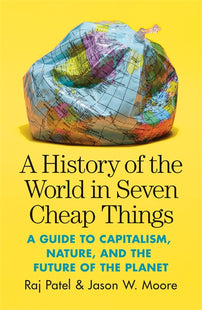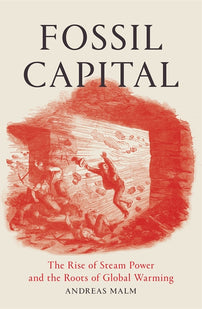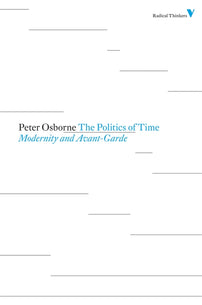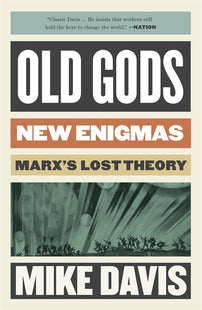What Time Will It Be After Capitalism?
In this time of expanding possibilities and immanent dystopias, how do we think through a revolutionary conception of time? In this article, a review of Jérôme Baschet’s book, Défaire la tyrannie du présent. Temporalités émergentes et futurs inédits (La Découverte, 2018), Christophe Bonneuil tackles the temporal dimensions of overcoming capitalism by way of a detour through the Zapatista experience, offering a deep insight into our relationship to history.

What if the future were something other than a ‘present 2.0’? What we are facing is not a climate crisis to be managed with ‘solutions’ or an economic globalization to be regulated, but the possibility of collapse. After the demise of so many political systems over the past five millennia, and with reports on the upheavals affecting the Earth reaching us from all sides, is it not overly reckless to consider capitalism immortal?
Some people prefer to highlight the apocalypse of an extinction of the human species. But this scenario fascinates only at the cost of obscuring any geopolitical and social analysis of resource asymmetries, singularities and resiliences that are differentiated between human groups around the world. As against this overwhelming perspective, which leads to the actual collapse being obscured, Jérôme Baschet, historian emeritus at the EHESS and fellow-traveller of the Zapatistas, believes that ‘another end of the world is possible.’[2] Until recently many people said that it was easier to imagine the end of the world than the end of capitalism, but the wind is changing, and Baschet’s book will help propel this change.
Baschet analyses our age as a civilizational blind alley in the face of five transformations: a digitalization that disrupts work and our ways of being together; a neoliberal bifurcation of capitalism that has restored a level of inequality comparable to the Old Regime; a new regime of existence on Earth, propelled out of the Holocene by an industrialism and consumerism that have become global; a great naturalistic divide between Nature and Culture, which is eroding while the West is now simply a province of the world; and, finally, a crisis in the way of articulating past, present and future and of situating ourselves in the temporality born with industrial modernity, also ending the certainty of a necessarily better future.
[book-strip index="1" style="buy"]This observation of an epochal change is conducive to reopening the future, once we reject the denial by the currently prevailing presentism of other possible worlds, and do not see the overcoming of capitalism as guaranteed by inexorable laws of history or the Earth system. This process pursues an uncertain path of insurrection and experimentation with forms of organization and life emancipated from the triple abstraction of the state (as totalizing mode of constitution of the community), of commodities and productivism, and of a West-centric universalism, as Baschet has already sketched in a previous essay (Adieux au capitalisme. Autonomie, société du bien vivre et multiplicité des mondes, 2014). In this new book, he focuses on one of the cultural conditions for the abolition of ‘capitalist tyranny’: a transformation in our relationship to time (escape from the hegemony of abstract time) and to times (new ways of composing past, future and present that go beyond both the traditional cyclical regime of historicity, the modern regime, and the presentist regime). Here the political desire to weaken the dominant mode of production of our reality is combined with the scholarly desire of an accomplished historian, offering a profound epistemological reflection on historical knowledge, memory and historicity. The search for paths beyond capitalism thus goes hand in hand with an ambitious epistemological re-foundation of history, emancipating historical knowledge from the conditionings that had presided over its birth as a discipline, at the heart of the imperial and industrialist nation states.
The notion of ‘regimes of historicity’ was proposed by François Hartog to indicate the ways in which societies articulate past, present and future, with the object of being intelligible to themselves.[3] The traditional regime constructs a cyclical time, in which the account of past actions prescribes what must be today and tomorrow. The horizon of expectation for the future is entirely contained in the field of experience inherited from the past. With the entry into the industrial age, the modern concept of history emerges through an opening up of the future (progress) in which the horizon of expectation is no longer limited by the field of experience, creating a narrative arrow pointing towards a future increasingly different from what has already been and what is happening now.[4] For Hartog, this is the ‘futuristic regime of historicity’, which Baschet more simply calls ‘modern’. The past is seen as over and done with (and therefore open to the objective knowledge of the historian), and is also depreciated (ideology of progress). The future organizes the meaning of past and present (future-centred point of view). This gives a direction to History, conferring on it a power of definition of what has not (yet) happened but is believable, in competition with that of religions.[5]
As we know, this modern regime of the composition of times steadily lost its hegemony throughout the twentieth century, and 1989 confirmed the assertion of a new system of historicity known as presentist. The fall of the Berlin Wall led some to declare ‘the end of history’ and bury the communist idea as a devastating ‘illusion’. But the reflux of the revolutionary idea and the conservative assertion of the lack of an alternative to capitalism are only the most salient symptoms of a broader crisis of the future, and therefore of history as a knowledge designed to make societies intelligible to themselves through analysis of their diachronic future.[6] This collapse of historical reflexivity is accompanied by the rise of institutionalized memorial practices, in which history is governed by memory: heritage policies, commemorations, identity discourses, attempts to legislate the content of history teaching, etc.
In everyday experience, there is now only the present. In both professional and love life, more forgetful subjectivities are formed in a telescoping of texts, emails, events that require urgent response. Trump even manages a global superpower by tweeting. In our digital condition everything becomes contemporary, simultaneous. ‘Everything appears on the same level in a present as extensive as the network itself.’[7] In the social sense, however, the present is the time during which conditions of action are relatively permanent. And contemporary acceleration (cf. Hartmut Rosa) is the compression of this present, trapped by the next moment and its new rules. Our networked, liquid world, rather than opening up possibilities, then functions as a sprawling systemic fatality, urging us to ‘adapt’ to global processes over which we have no control. Presentism, far from being the enjoyment of the present moment, is therefore a dictatorship of the next moment. The future-centrism of the modern regime of historicity is compressed into the horizon of the most immediate future. All that remains of the future is the seizing of the present by the immediate (‘protension’), to the detriment of more projective, imaginative or subversive modalities of the future (pp. 105-6).
[book-strip index="2" style="buy"]As against the usual ideological readings of the transition from the modern regime of historicity to the presentist regime, Baschet proposes a social reading, opening onto a true temporal anthropology of historical capitalism. To shed light on the inflexions of historicity, he explores the temporalities experienced on a daily basis in commodity networks and production relationships. He notes that the purest and most advanced form of contemporary presentism lies in the rationality of financialized capitalism: action here is entirely swallowed up by the immediate future of economic anticipation. But if neoliberal financialization and its digital infrastructure have dramatized the domination of abstract time (cf. the IFRS international accounting standards, which since 2005 reduce any value to a ‘market value’ at time t), this actually emerged with the industrial age as a vector for the tyrannical optimization of times spent at work and at leisure. Baschet proposes as a general formula the imperative tendential increase in quantities per unit of time (a ratio Q/t) as opposed to a qualitative lived time). Besides being a cold logic for governing factories, fields and wars of the industrial age, this increase in Q/t has also functioned as a powerful promise of modernity, that of an indefinite increase in knowledge, comfort, travel and experience (pp. 152-5).
This detour through temporalities allows a much richer reading of presentism as the cultural logic of contemporary capitalism. Firstly, it is revealed as the product of the very project of infinite mobilization of the world. Rather than a break with ‘futuristic’ modernity, presentism is a hyper-modern radicalization of it from within, by hegemonic extension of the logics of temporal acceleration specific to industrial governmentality. Secondly, contemporary presentism results from a deadly logic of combined impoverishment of lived times, interiorities and the living fabric of the planet (p. 165). Rather than the usual discourse of historical crisis or the abandonment of any ideal of emancipatory social transformation, it attests to a crisis, a collapsed stage of capitalism, which demands an ‘ethical insurrection against the generalized destruction of life forms’ (p. 89) and a quest for more meaningful post-capitalist futures.
‘Undoing the tyranny of the present’, in the title of Baschet’s book, therefore means extracting our lives from being trapped by a dominant form of reality production, all the more rigid in being sprinkled with a dose of ‘flexibility’. It means thwarting this closure of possibilities of transformation and emancipation. But if the presentism of contemporary capitalism poses a problem, there can be no question of returning to the regime of modern historicity. On the left, accelerationism or celebration of the virtues of the digital connection of the multitudes testify to the survival of a critique of capitalism that reproduces the grammar of modern industrialism. Baschet rejects this ‘modernist vision of emancipation’ which ‘can only contribute to accentuating the destructive effects generated by the world of economics’ (p. 81). Rather than pursuit of the modernization front or ‘terrestial becomings’,[8] he proposes to equip emancipation movements with another way of composing times, a new and plural regime of historicity.
[book-strip index="3" style="buy"]We begin now to understand the scope of Baschet’s project. Emergence from capitalism, rather than a mere change in economic rules, implies for him a rupture with the social forms and modes of production of subjectivities specific to commodity and industrial society. Hence the need for a civilizational metamorphosis, already germinating in various breaches here and there. In Adieux au capitalisme, Baschet developed three dimensions of this anthropological revolution: first, liberation of humanity from its supposedly egoistic and antisocial nature, and from any idea of pre- or extra-social human nature; second, abandoning the individualistic dogma that cuts individuals loose from their ties, making each one ‘by himself a perfect and solitary whole’ (Rousseau), and from the idea of the pre-eminence of the individual over society; and finally, deserting the posture of self-proclaimed master of the universe and the nature/culture dualism.
Défaire la tyrannie du présent introduces a fourth element in this anthropology, an alternative subjectivation to that of Homo capitalistus. This involves metamorphosing our relationship to time by abandoning the hegemony of an abstract time outside of existing ones, and politically organizing a temporal relaxation of our lives. It also means transforming our relationship with times, creating new poetic and emancipatory ways of composing past, future and present.
Walter Benjamin, in his ‘Theses on the Philosophy of History’ written in 1940, lambasted faith in ‘progress, understood as a historical norm’, and the certainty, on the left, of being in the direction of history ‘given by the development of technology’ and ‘mastery of nature’, which he saw as playing the game of conservatives, for example in the ‘technocratic features later encountered in Fascism’.[9] Against historicist and modernist forms of historical knowledge of time, he defended a messianic vision of history: ‘fanning the spark of hope in the past’,[10] returning to the defeated of the past their power, so as to prevent them being trampled on again in the present. Benjamin’s Messiah-historian thus ‘redeems’, by a single act, a past and a present that are subterraneously connected by base lines that escape a history oriented ‘in a homogeneous and empty time’.[11]
If Benjamin’s main target was modern historicity and its world, ours is also presentism and its world. It is here that Baschet takes us into the Zapatista mode of composition of times, since the Zapatista revolution identified the
‘perpetual present as a fundamental adversary that leads to proposing a strategic alliance between past and future’ (p. 30). From the cyclical time of the traditional historical regime, Zapatism retains the positive value of certain aspects of the past and certain elements of its moral economy, but without letting itself be locked into the circle of repetition, given that it is seeking a better future. From the progressist time of the modern historicity regime, it retains the hope for a better future, but without an arrow of time, laws of history, or adherence to a vision of human destiny in stages imposed by the colonizing West. And from presentism, it retains the critique of progress and Leninist bright futures, but rejects the conservative status quo.
Against the post-modern and presentist disaggregation of historical processes, and against the evolutionary linearity of modernity, the Zapatistas ‘wager on a combined recovery of past and future’ (p. 33). As with Benjamin, activation of both futures and pasts as actors in the present makes it possible to denaturalize the order of things by appeal to other possible worlds. It is not a question of essentializing good Amerindians to rescue the idea of revolution, but of experiencing ‘improbable encounters between the past of indigenous communities, who have survived the imposition of the market, and the future destiny of a humanity that rejects self-destruction’ (p. 32). Such active and non-essentializing work of ‘recuperation’ converges with decolonial studies as well as the practice of ecofeminists.[12] It is from multiple territories, multiple eras, multiple genders, multiple occupations, multiple peoples (including non-human ones), that living fragments of the world, gestures of dignity and freedom, sober and egalitarian moral economies, a sense of beauty and justice, communal practices and knowledge, can be recovered and transmitted/transformed through the disasters and collapses under way... elements that have despite everything, thanks to permanent inventiveness and determination, survived the disasters of colonization and slavery, the ravages of witch-hunting, the violence of capitalist, patriarchal and colonial exploitation and dispossession, the stains of extractivism and disfigurement, neoliberal dismantling, and the hegemony of the economy. Through a kind of anti-capitalist sorcery, the powers of emancipation (re)emerge from multiple times, offering a new mode of existence for the revolutionary idea. As against a modernist historicity of emancipation, Baschet thus allows us to experience emerging revolutionary temporalities and historicities. New geographies too, since it is no longer a question of attributing centrality to struggles waged solely in the central zones of the world system.
If the exit from capitalism requires new compositions of times, what is the role of history’s contribution as a knowledge activity? What critical historical work can be done in the face of presentism? And how can history as knowledge be unburdened of some of its paradigms forged in industrial modernity?
The diagnosis of the ‘crisis of history’ under the presentist regime is well known: the fall in book sales; the loss of the authority of history as a form of knowledge carrying political lessons; the impoverishment of research and higher education; the rise of identity discourse; political, judicial and memorial instrumentalization, etc. This diagnosis has been coupled with a jealous and whining retreat on the part of professional historians. While the borders between specialists and laypeople, between scientists and activists, were extremely porous half a century ago – the greatest historians were arguing about the French Revolution, the centrality of the working class, Algeria or abortion – since 1980 we have seen a depoliticization of the field and a tightening of the borders between specialist and lay, between history and memory. Is this strategy of retreat adequate, or do we not need, in order to confront presentism, different epistemologies and social alliances than those inherited from modern times?
‘De-specialization’ is an essential feature of a post-capitalist world, and Baschet champions above all a less haughty relationship between historians and society (p. 249). From a ‘mode of knowledge by trace’, implying absence of the agent that produced it, history should become a ‘mode of symptomal knowledge’, implying the co-presence of agent and sign (p. 257). Baschet also outlines a connected and comparative intercultural anthropo-history that escapes Eurocentrism. To a ‘history of the dominated’ from above he opposes a history from below, ‘from the perspective of the dominated’, which is more fertile for knowledge (p. 267-72). And there is no reason for an epistemological break between history and memory, since ‘it is only in the modern regime of historicity that memory and history are antagonistic’. While continuing to offer a focus of resistance to a present-centeredness ‘allied with all dominations’, history must take into account, if only to question it, the power of anachronism, of ‘the irruption of the past into the present’ that is memory (pp. 258-60).
Baschet also desires a history ‘rid of progressive mythologies’, such as are still subterraneously present in historical narratives: praise of ‘necessary’ modernizations, beneficial imposition of order by the state ‘where chaos previously reigned’, or societies whose knowledge is supposedly superior to the beliefs, imprecisions or obscurities of their predecessors (pp. 261-7). He proposes ‘both an acknowledgement of the promises of modernity and (...) an understanding of it as a loss, a destruction of knowledge and a divestment of the autonomous power of action’ (p. 263).
Thirdly, the history Baschet champions no longer presupposes a uniform chronological time outside the existing ones but is attentive to the plural temporalities ‘of each thing understood in its existence as process’ (p. 191). Just as James Scott’s Seeing Like a State (1998) or Josep Rafanell’s Fragmenter le monde (2018) dismantle the standardization, abstraction and commensurability of ecological and social spaces with a view to governing them from above by the state or transnational firms, Baschet desynchronizes time, breaking it up into existing durations that are dispersed but interrelated. Against all times dissociated from concrete futures, he proposes to conceive history on the basis of the temporalities and rhythms specific to those variously existing, with a view to conceiving the ‘full contemporaneity of the way in which the past is taken up and actualized’ (p. 230). If every historical situation results from a conjunction of partly independent and heterochronic causal series, forming a complex and non-linear whole, then history is not free of butterfly effects; and the next few years not free of emergent possibilities.
But does creating non-progressist passages between past, present and future, or pluralizing the arrow of time, sufficiently shake the process-type core inherited from a historical paradigm forged in the crucible of nineteenth-century industrial modernity? Baschet will surely probe deeper into this nexus in his future work, perhaps following the work of anthropologists such as Eduardo Viveiros de Castro or Barbara Glowczewski.[13] These describe, on the basis of Amerindian and Aboriginal worlds, quantum effects between potential and actual; ways of experiencing times in which present, past and future can be in radical contemporaneity because there is irreducibility between the time of myth and the time of ‘history’ (in our own sense).
Finally, Baschet explores what a history could be that goes beyond the great division between nature and society. Over the last two centuries, this break has been both ontological (naturalistic division between humans, endowed with interiority, and all other beings, supposedly not), epistemological (institutionalization of the human and social sciences, as separate from the natural sciences and tasked with explaining social facts only by social facts, externalizing so-called ‘natural’ causalities), kinetic (a supposedly static or slow nature relative to dynamic human societies) and temporal (a disjunction between long geological temporalities and short historical temporalities). With the Anthropocene, the collapse of the division of scale between historical temporality and geological temporality puts this last great division into crisis, creating a ‘disorder in temporality’ (p. 88, also pp. 136-7). From now on, whereas Marc Bloch could define history as the ‘science of men in time’, Baschet reconceives it as the ‘science of the dynamics specific to ecosocial formations’ and ‘critical knowledge of the collective future of inhabitants of the Earth’ (p. 238). A postnaturalist geohistory would then focus on exploring the resonances of human histories and terrestrial processes, animal histories or the interactions and intelligences that unite all living things. As against those historians who are too quick to divest history in favour of geology (Dipesh Chakrabarty), and those who resent the Anthropocene as an intrusion on their territory, seeing it as simply an object for the natural sciences, Baschet proposes a history that learns from the natural sciences and fertilizes them in return, in order to jointly analyse those dynamics previously called ‘social’ and those previously called ‘natural’ (p. 253-4).
To sum up, far from the litany of the ‘crisis of history’ under a presentist regime, Baschet sketches the lines of a historical knowledge that can regain its full place if it goes beyond its modernist conditioning. A question that will not only concern historians, but also give shape to non-modern revolutionary futures, terrestrial ones.
Translated by David Fernbach, Lundi Matin, 16 October 2018
[book-strip index="4" style="display"][1] Christophe Bonneuil is co-author, with Jean-Baptiste Fressoz, of The Shock of the Anthropocene (Verso, 2018) and, with Sandrine Feydel, of Prédation. Nature, le nouvel eldorado de la finance (La Découverte, 2015).
[2] Pablo Servigne, Raphael Stevens and Gauthier Chapelle, Une autre fin du monde est possible (Seuil, 2018) – also a caption used in recent graffiti.
[3] François Hartog, Régimes d’historicité. Présentisme et expériences du temps, Seuil, 2003.
[4] Reinhart Koselleck, L’expérience de l’histoire. Seuil/Gallimard, 1997.
[5] François Hartog, Croire en l’histoire, Flammarion, 2013.
[6] François Hartog, ‘Vers une nouvelle condition historique’, Le Débat 2016/1 (no.188), 169-80.
[7] Ibid., p. 180.
[8] The polarity between terrestrial and modern is not posited as such by Baschet: it is taken from Bruno Latour, Facing Gaia (Polity, 2017) and Down to Earth (Polity, 2018). See Christophe Bonneuil, ‘Comment la ZAD nous apprend à devenir terrestres’, in Éloge des mauvaises herbes (LLL, 2018), 103-113. See also the text in the same issue by Sophie Gosselin and David Gé Bartoli.
[9] Walter Benjamin, Illuminations, London: Pimlico, 1999, p. 251.
[10] Ibid., p. 247.
[11] Ibid., p. 252.
[12] Reclaim, recueil de textes écoféministes (ed. Émilie Hache), Éditions Cambourakis, 2016.
[13] Eduardo Viveiros de Castro, Métaphysiques cannibales (PUF, 2009); Barbara Glowczewski, Les rêveurs du désert: peuple warlpiri d’Australie (Actes Sud, 1996).






